so what about the instinct to survive. **
Why is it that survival comes before thrival*?
*Thrival: a term that combines survival and thriving, taught to me by Margo Okazawa-Rey
so what about birds and burying beetles. **
How do birds know when to turn, when they fly in unison? We could learn a things or two from their community centered lives
so what about support and what about struggle. **
So what about support reminds you of struggle and what about struggle reminds you of support? Do they need the other one in order to live?
so what about ants and bees and termites. **
How would our work be different if we were taught to prioritize our community, travel in groups, live close to home, take care of our elders?
so what about the field upon which tender feelings develop even amidst otherwise most cruel animals. **
In what ways do you continue, even when our people are being killed everyday? What are the small gestures of care you need to receive? How do you want me to touch you? Who do you want to yell with and where?
so what about migration, breeding, autumn. **
How far do we have to march to hold justice in our hands? What does this life long march feel? How do we pass down this work through our hands?
so what about the numberless lakes of the russian and siberian steppes and what about aquatic birds, all living in perfect peace— **
-
**original verses from Francis Lo, A Series of Un/Natural Disasters, Commune Editions, 2016
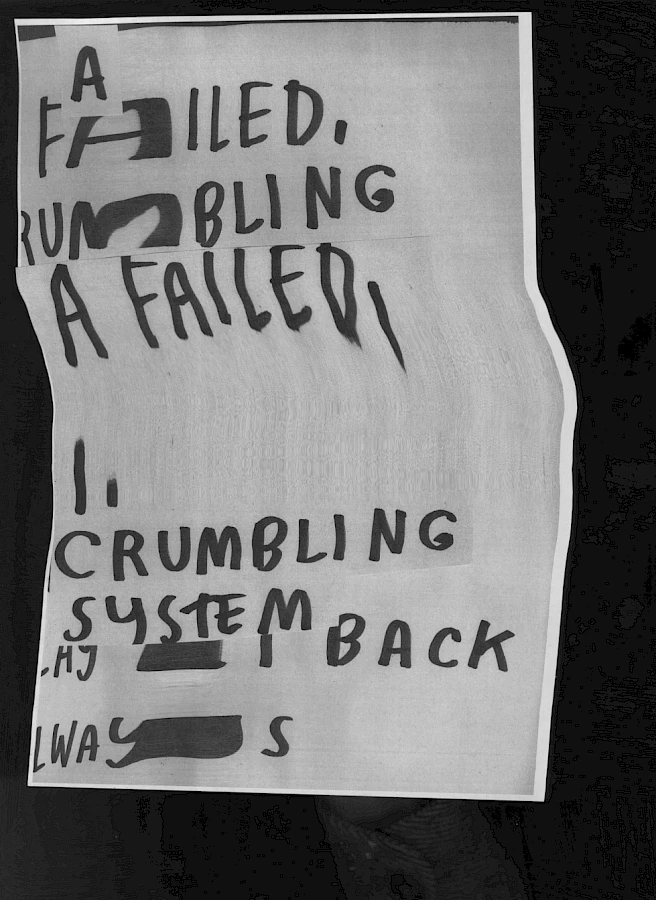
Lukaza Branfman-Verissimo, A Failed Crumbling, Xerox collage scans, edition of 17, 2020. Courtesy of the artist.
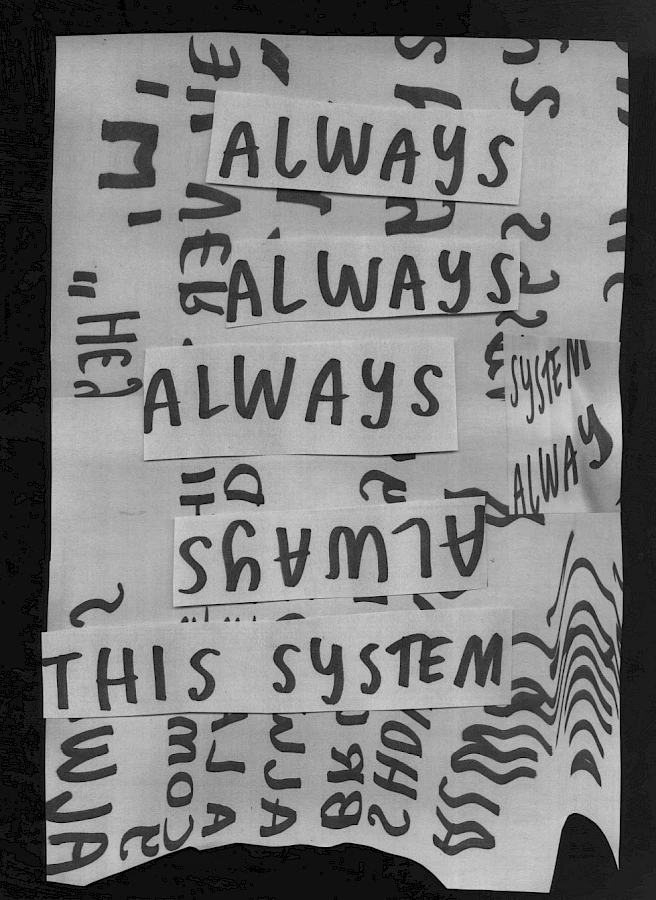
Lukaza Branfman-Verissimo, Always Always, Xerox collage scans, edition of 17, 2020. Courtesy of the artist.
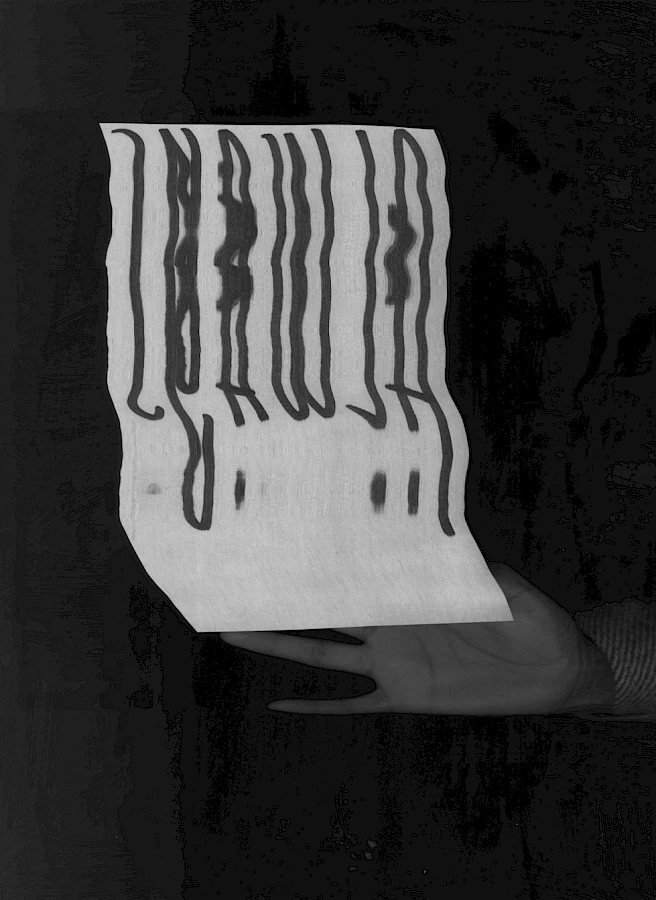
Lukaza Branfman-Verissimo, Always, Xerox collage scans, edition of 17, 2020. Courtesy of the artist.
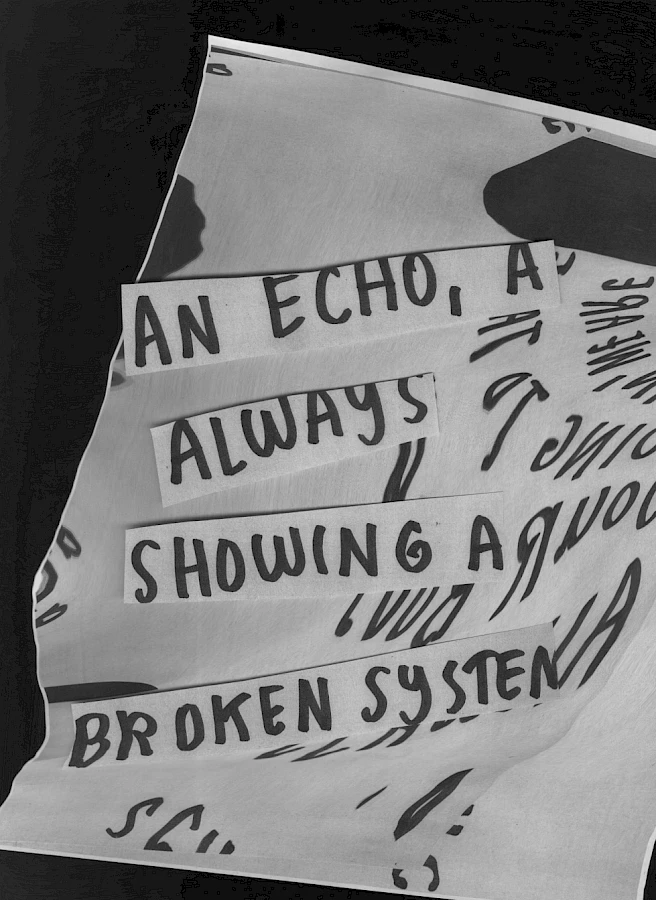
Lukaza Branfman-Verissimo, An Echo, Xerox collage scans, edition of 17, 2020. Courtesy of the artist.
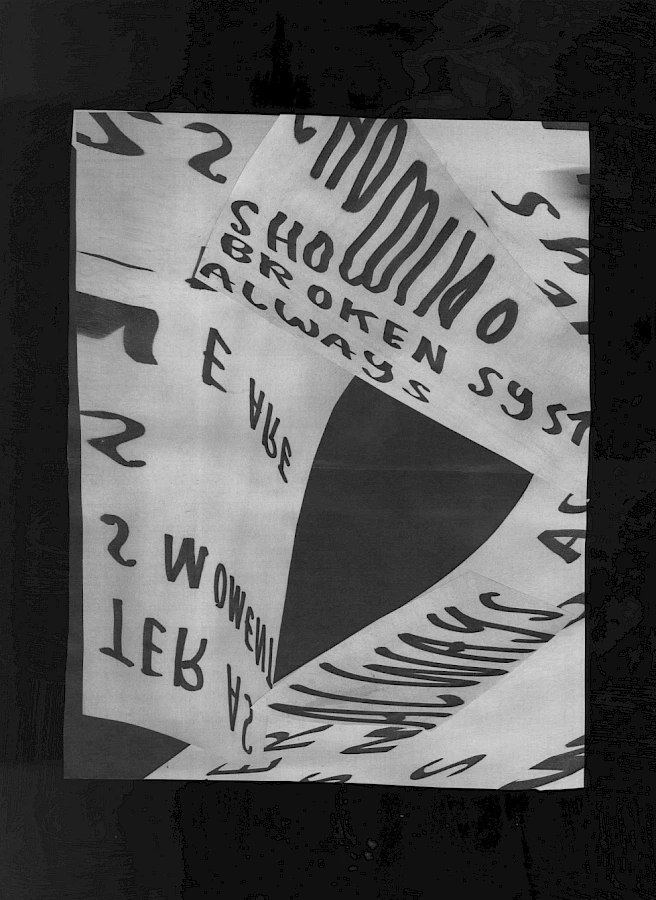
Lukaza Branfman-Verissimo, Broken Always, Xerox collage scans, edition of 17, 2020. Courtesy of the artist.
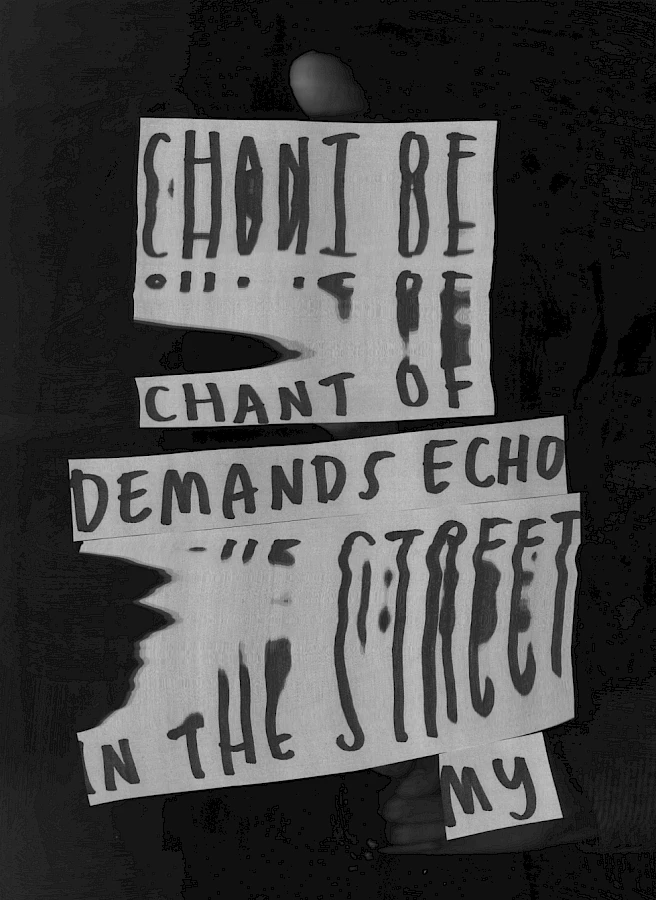
Lukaza Branfman-Verissimo, Chant of Demands (2), Xerox collage scans, edition of 17, 2020. Courtesy of the artist.
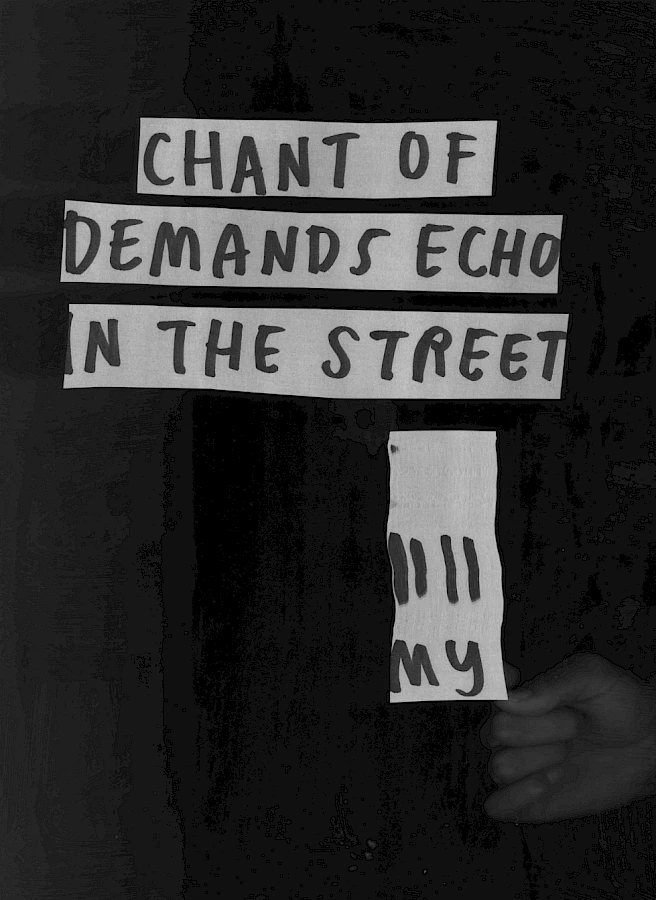
Lukaza Branfman-Verissimo, Chant of Demands, Xerox collage scans, edition of 17, 2020. Courtesy of the artist.
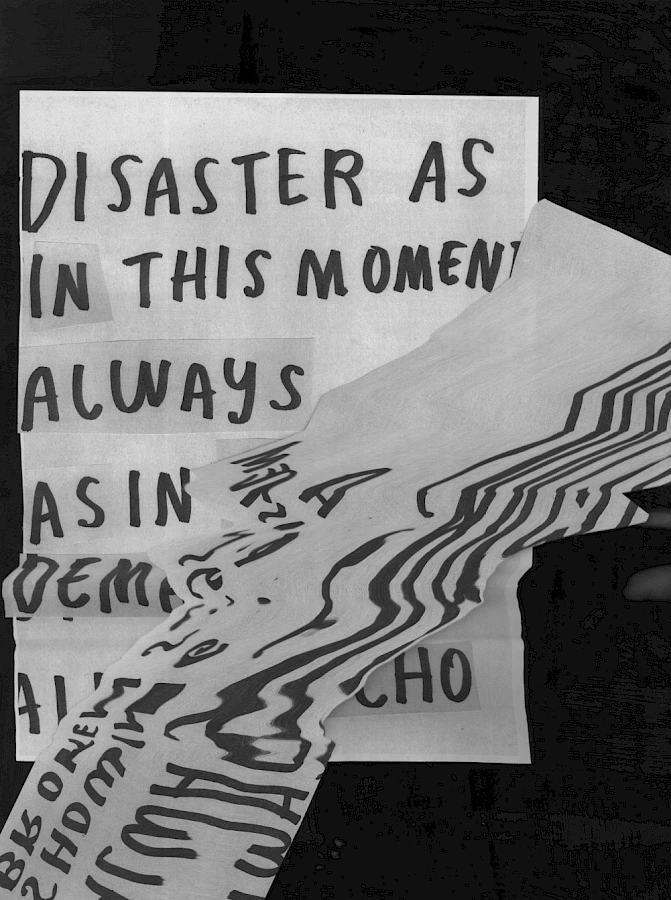
Lukaza Branfman-Verissimo, Disaster as in this Moment, Xerox collage scans, edition of 17, 2020. Courtesy of the artist.
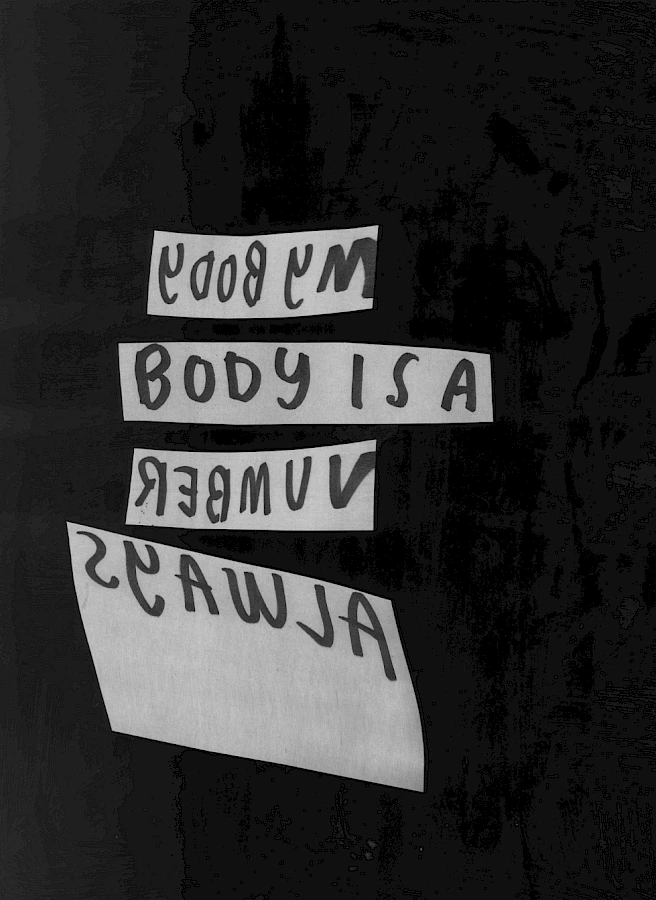
Lukaza Branfman-Verissimo, My Body is a (2), Xerox collage scans, edition of 17, 2020. Courtesy of the artist.
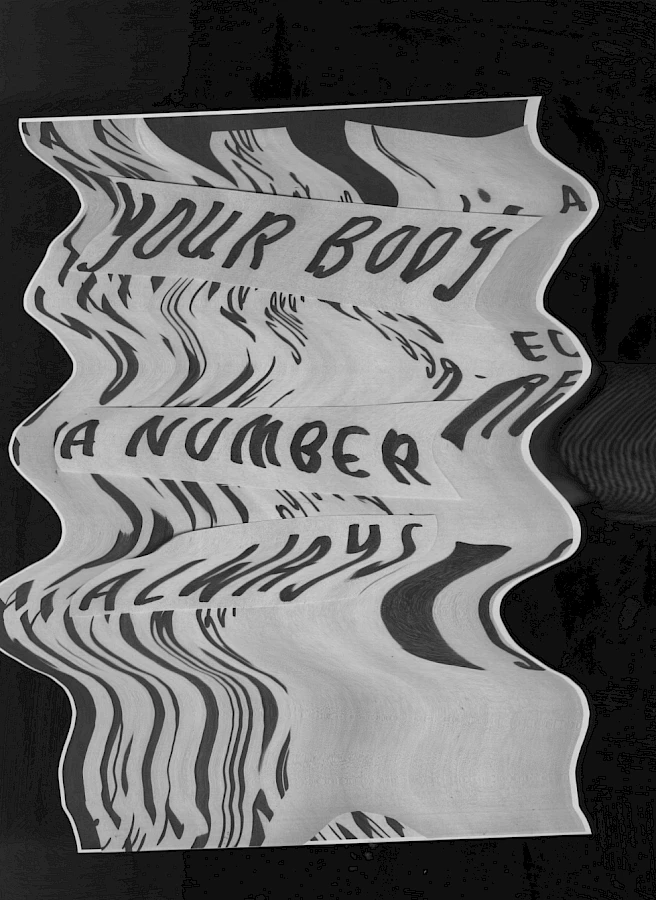
Lukaza Branfman-Verissimo, My Body is a (3), Xerox collage scans, edition of 17, 2020. Courtesy of the artist.
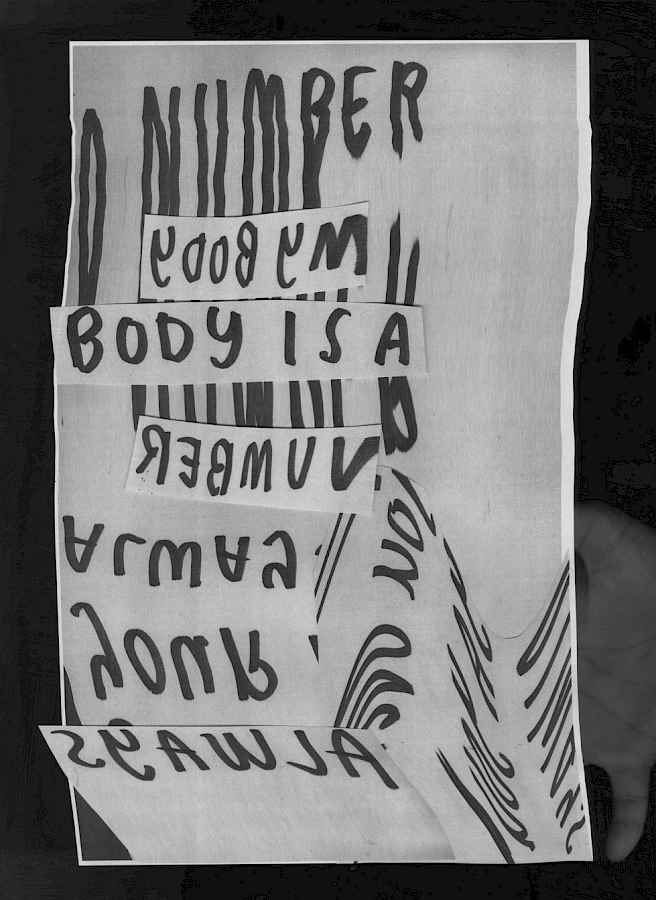
Lukaza Branfman-Verissimo, My Body is a, Xerox collage scans, edition of 17, 2020. Courtesy of the artist.
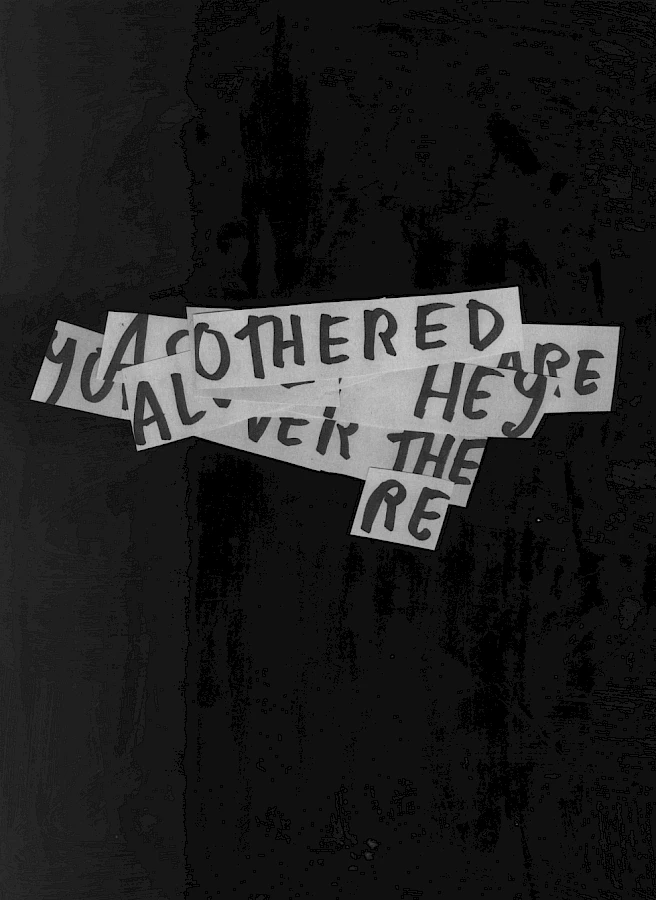
Lukaza Branfman-Verissimo, Othered, Xerox collage scans, edition of 17, 2020. Courtesy of the artist.
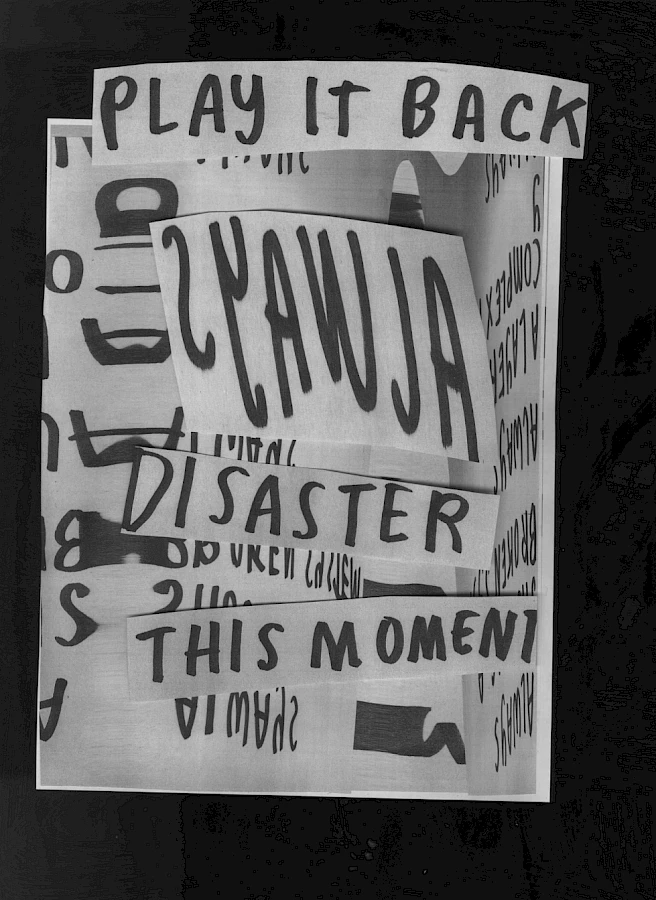
Lukaza Branfman-Verissimo, Play it back, Xerox collage scans, edition of 17, 2020. Courtesy of the artist.
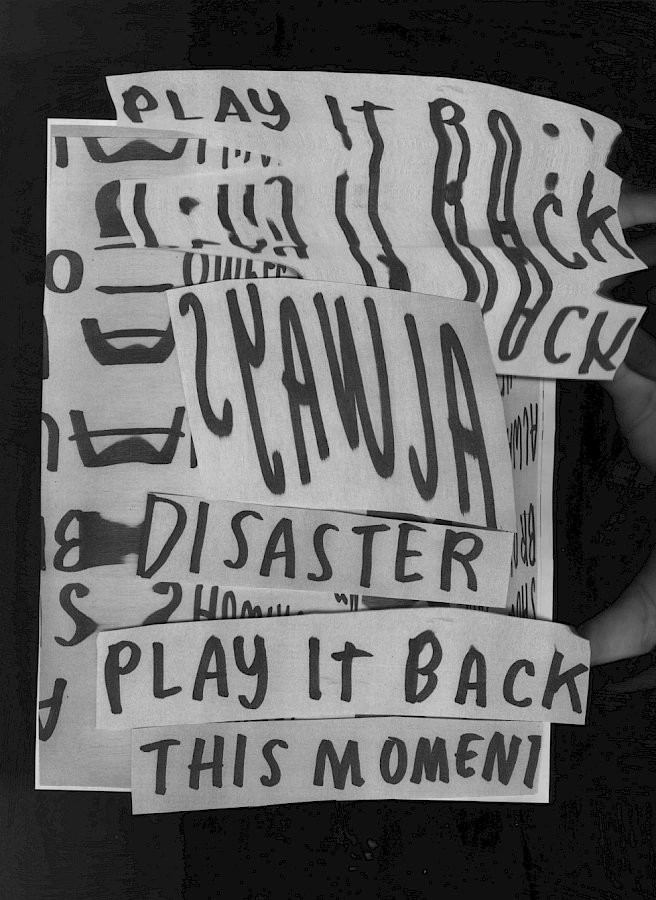
Lukaza Branfman-Verissimo, Play it back (2), Xerox collage scans, edition of 17, 2020. Courtesy of the artist.
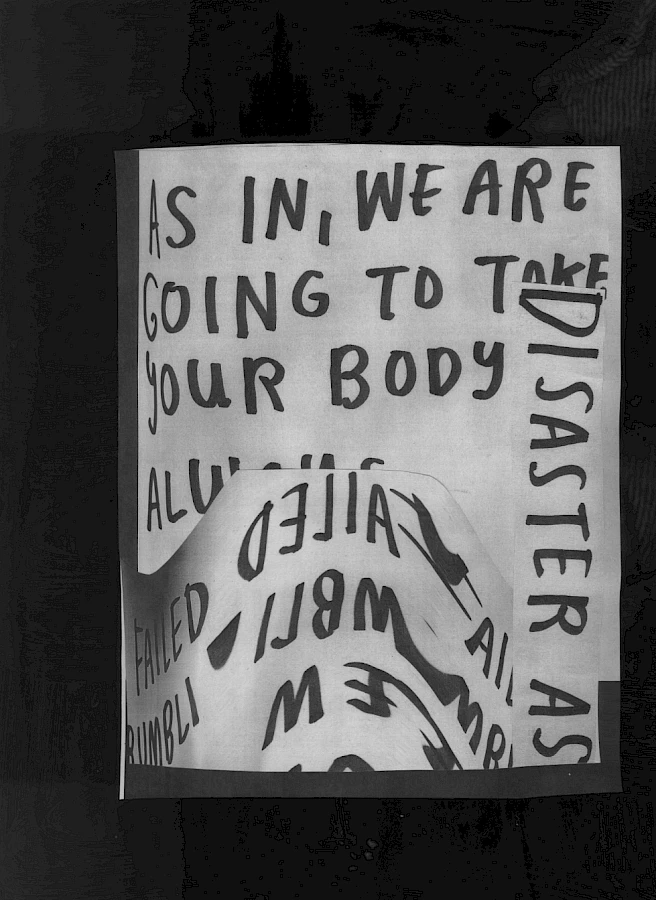
Lukaza Branfman-Verissimo, We are going to take, Xerox collage scans, edition of 17, 2020. Courtesy of the artist.
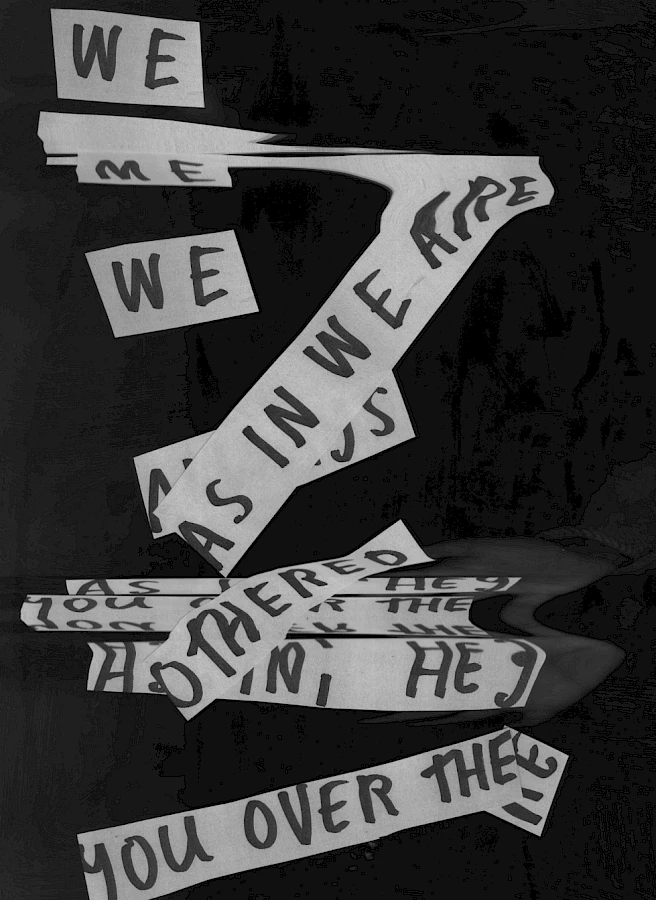
Lukaza Branfman-Verissimo, We as in we (2), Xerox collage scans, edition of 17, 2020. Courtesy of the artist.
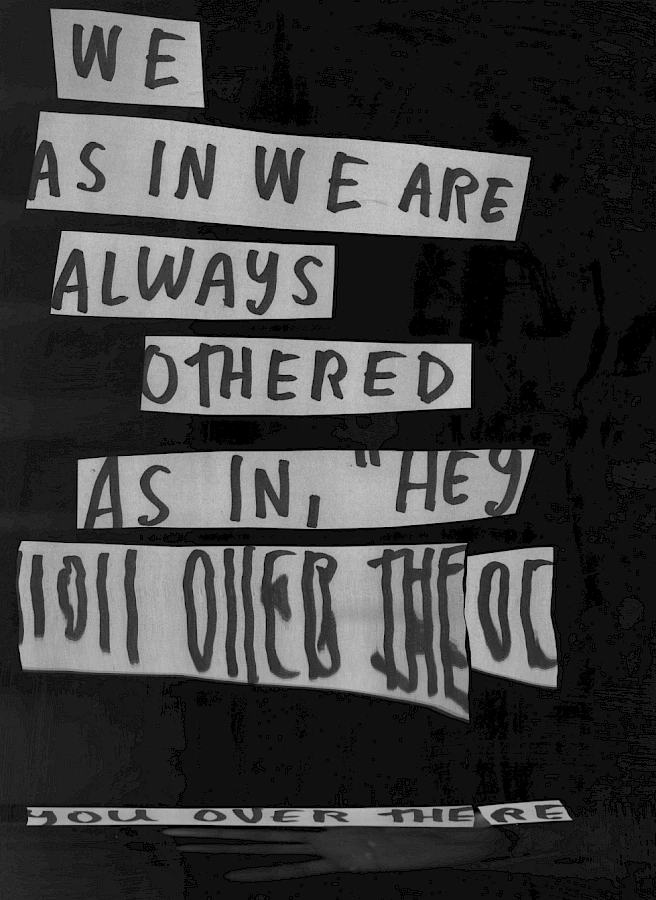
Lukaza Branfman-Verissimo, We as in we, Xerox collage scans, edition of 17, 2020. Courtesy of the artist.
*
Translator’s Note
Lukaza Branfman-Verissimo
(to accompany the edition of 17 images)
In compiling this edition of 17 scans/prints/images, I started with a call and response list.
A call and response list is a practice I do to generate content, it also allows my voice to get interwoven with the text I am responding to. In this case, that text is A Series of Un/natural/ Disasters by Francis Marie Lo, specifically the first poem in the book, Always Already.
The call and response list went something like: a line from Always Already, then a line from me, a line from Always Already, then a line from me, etc, etc, until I I had crafted a new poem, a new series of responses, questions, continuation of Lo’s words next to mine.
The way I read Lo’s words, feels like experiences I have had as a Black, queer, artist, working class person living in this world. The language feels shared, so it felt so natural to interweave these thoughts. Transcribed in my handwritten font, on thin sheets of newsprint, cut up, collaged, scanned on a xerox printer bed, blurred words, reversed words, words pulled along the scanner bed, cut up again, glued together and then re-scanned. My material choices are as intentional as the stories I choose to include. It is exciting when words camouflage into themselves and turn into patterns and abstract shapes, our complex histories don’t need to be seen by everyone. The words repeat, always always always, our histories, the actions against us, the resistance work we do, repeat repeat repeat, a “feedback loop” as Lo says it.